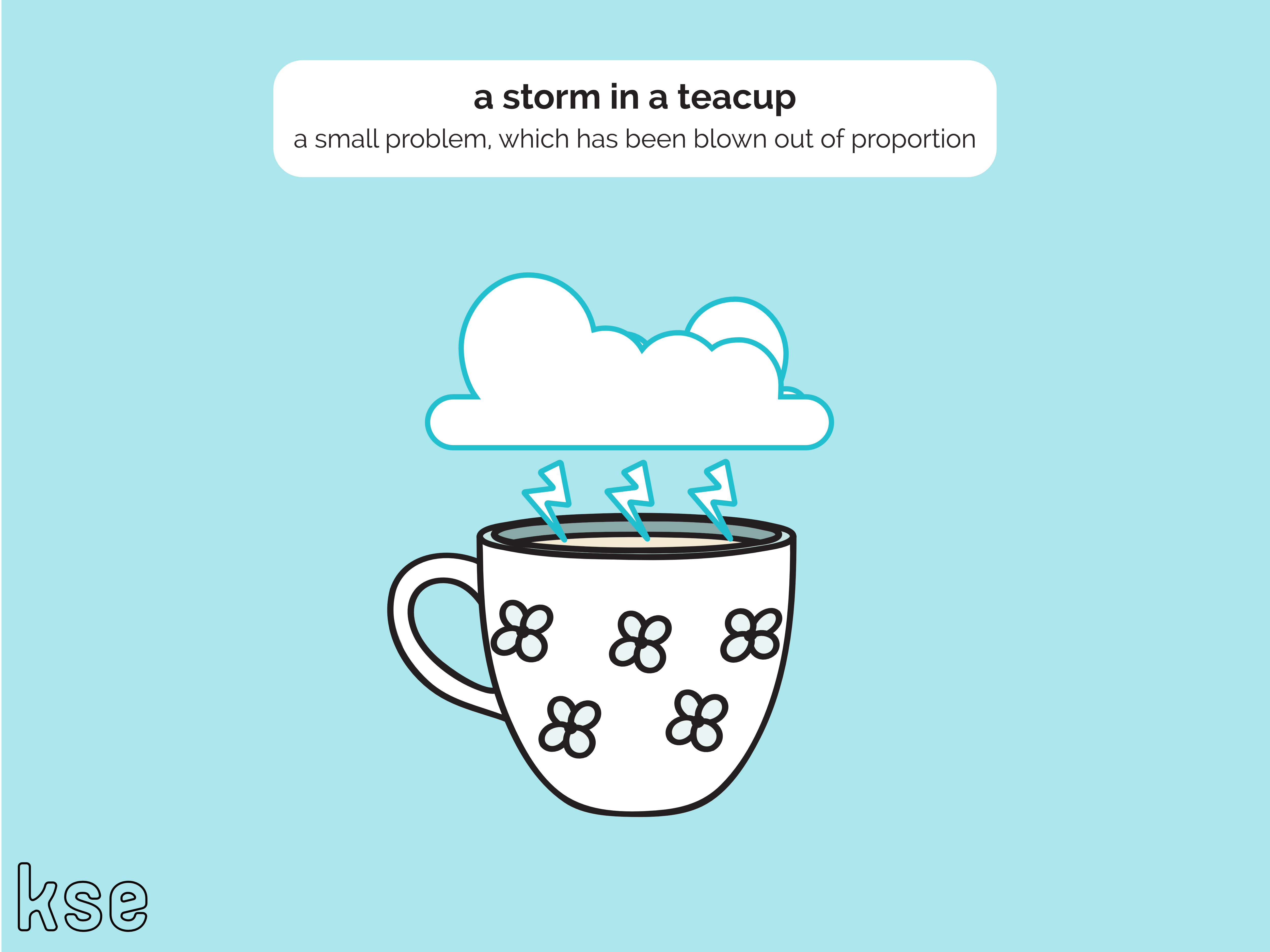

a lot of unnecessary anger and worry about a matter that is not important.

They make a small problem seem like a big problem: We'll all have to weather the storm until the economy gets better." A storm in a teacupĪ storm in a teacup is when someone makes a situation seem much worse than it is. This is one of many tea idioms we have in English. "The economic crisis is expected to last until the end of the year. A storm in a teacup is a more British English idiom, whereas the American English version would be a tempest in a teapot. Any port in a storm, you know." Weather the storm I really think you're making a storm in a teacup over this. If you ask me, these protests are nothing but a storm in a teacup that's been stoked by a media campaign of misinformation.

"I don't like staying with my brother, but I have no choice until the builders have finished working on my apartment. A disproportionate reaction of anger, concern, or displeasure over some minor or trivial matter. In an emergency any solution will do, even one that wouldn't normally be acceptable: There's a storm brewing." Any port in a storm "Have you seen Thomas today? He looks very angry. "My wife will kick up a storm if I come home late again." A storm is brewing (Also kick up a fuss) to make trouble or to show great annoyance about something because you are unhappy. The idioms below use storm for highly emotional situations. "There was a storm of complaints when the boss announced the paycuts." Did you know that storm is also used to describe strong emotions? For example: You probably heard the word storm used to describe weather, like in the definition above. (noun)An extreme weather condition with very strong wind, heavy rain and often thunder and lightning.


 0 kommentar(er)
0 kommentar(er)
